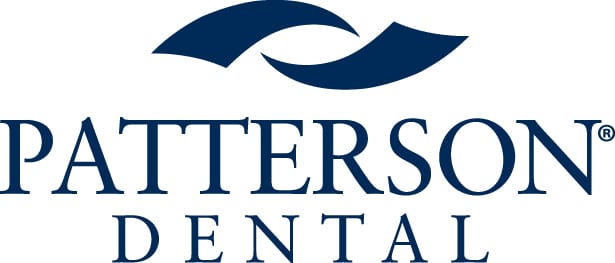Hi there! My name is Dr. Bri Torgerson and I am a General Dentist practicing out of St. Louis, Missouri.
I graduated in the really fascinating year of 2020 from The Herman Ostrow School of Dentistry of the University of Southern California.
I have worked in Scottsdale, AZ, Fort Lauderdale, FL, and now St. Louis, MO.
There are many common questions that I’ve gotten throughout my time practicing that have been consistent everywhere I’ve been.
COVID-19 made a lot of people more aware of their health and more aware of the connection between their oral health and their overall health. Consequently, this new found interest in health sparked interest in ways to improve oral health more naturally.
I think overall dentistry, and medicine in general, has come a long way from where they used to be. More research is being done to help improve predictability and longevity, all while being more conservative in treatment.
But how conservative is TOO conservative?
Dental Myth: Charcoal Toothpaste Whitens & Detoxifies Gums
Today, I want to talk about a common dental myth; charcoal toothpaste.
This is one of two myths that, by far, get the most attention in mainstream media which makes it a common question in my chair.
I’m here to provide a research-backed explanation of this dental myth and, potentially, bust it!
Let’s get started!
Components of Toothpaste
In general, almost all toothpastes are composed of a few components: “abrasives, cleansers, and one or more therapeutic agents”⁴.
If you know this, you’re already on the right track. The key to finding the most beneficial toothpaste is to understand that these key components along with key active ingredients, should all be within certain parameters in order to get the most benefits while maintaining low risk.
Toothpaste should be low in abrasiveness in order to cause as little damage as possible to our periodontium long-term while still functioning to remove plaque, biofilm, and extrinsic stains⁵.
This is all based on a twice-a-day, for two minutes, while using proper brushing technique, data. And I want to be clear on something: this is true for all abrasive toothpaste, not just charcoal toothpaste.
Marketing departments for big toothpaste companies do a great job of claiming to whiten but what the general public doesn’t know is that most are almost the same relative abrasiveness as charcoal toothpaste and don’t actually whiten teeth by penetrating the innermost layers, they just help remove extrinsic staining.
How Abrasiveness in Toothpaste is Measured
Across the board, abrasiveness in toothpaste is measured by something called RDA and REA.
RDA, or Relative Dentin Abrasivity, and REA, Relative Enamel Abrasivity, are measurements used to determine the relative abrasivity of toothpastes on human teeth⁵. The higher the number, the more abrasive against, not only hard tissue but also to the soft tissue in the mouth⁵,⁶.
The American Dental Association recommends toothpaste with an RDA of 250 or less. So be sure to check that value on your regularly used toothpaste (again, not just charcoal toothpaste can be detrimentally abrasive to your teeth and gums).
Growing Popularity of Charcoal Dental Products
I’ll start by saying charcoal toothpaste, charcoal floss, and charcoal toothbrushes are relatively newer dental health products. They became popular when people began to use it as a homeopathic remedy to remove toxins from your body.
According to the National Institute of Health, activated charcoal can be used when a toxin has been ingested as a way of poison control and detoxification by reducing the absorption under certain, specific, and time-sensitive circumstances¹.
Some companies decided to take this information, however, and push it to the extreme – capitalizing on “anti-toxin” claims.
A study from the University of Utah, however, says there is no research to support that charcoal improves digestive health, reduces cholesterol, or removes other impurities from the body². This study also mentions that taking activated charcoal can interfere with medications, cause other severe side effects, and should only be taken under the supervision of medical personnel.
Do Not Buy Into What Social Media is Telling You
My issue is, that the general public will buy into what the media is selling them. Most people either don’t have access to information, they aren’t trained to sift through information, and they don’t know where to find information that is based on actual research and not hearsay like healthcare professionals do.
This is why it is our duty as healthcare providers to educate our patients on these things. It is not their job to understand, it’s our job to educate.
So logically, if you then believe, as a member of the general public, that activated charcoal has all these amazing properties like toxin removal and purification power, you would also think it has to carry those same properties for oral health, as well.
Mainstream media and dental product companies sell charcoal products with claims to detoxify the oral cavity and whiten your teeth. A PubMed study researched four different kinds of toothpaste, including charcoal toothpaste, and looked at tooth color, surface roughness, and microhardness of human enamel.
The 12-week study revealed that there were no differences in whiteness between each toothpaste, however, they did note a statistically significant increase in surface roughness when using the charcoal toothpaste³.
Increased Abrasion on the Enamal
This increase in abrasion on enamel with charcoal is important – this means that your enamel, the hardest substance in your body, was significantly affected by abrasive charcoal.
Underneath your enamel is dentin. Dentin is naturally more yellow and requires a less acidic environment in order to be affected by dental decay than your enamel.
In theory then, over time, these abrasive effects can decrease enamel thickness, damage soft tissue cause recession, and expose tooth-root surfaces, both of which increase sensitivity, increase your risk for getting cavities by thinning of enamel protective layer, and actually make your teeth appear more yellow.
So, Are Charcoal Toothpaste Claims a Dental Myth?
Well, if you ignore the abrasive qualities of charcoal toothpaste, there’s no research saying charcoal toothpaste is UNsafe technically.
With that being said, research does show that charcoal toothpaste does not live up to its claims of whitening statistically greater than other whitening toothpaste and could potentially lead to more yellow teeth in the future.
The bottom line is, that there’s not enough research to either prove or disprove its whitening effects (versus extrinsic stain removal), or its ability to detoxify the gum tissue, but research does show that, because of its higher RDA, it is considered potentially detrimental to the enamel, dentin, and soft tissue long-term.
So, how do you feel about charcoal toothpaste? What kind of research would you like to see more of as it pertains to charcoal products? What results have you seen from patients who swear by charcoal products?
References:
- Activated Charcoal, ncbi.nih.gov/books/NBK482294/
- Should You Be Eating Activated Charcoal?, healthcare.utah.edu/healthfeed/2017/10/ should-you-be-eating-activated-charcoal
- Effects of charcoal-based whitening toothpastes on human enamel in terms of color, surface roughness, and micro hardness: an in vitro study, pubmed.ncbi.nih.gov/33774715/ 4. Abrasiveness and whitening effect of charcoal-containing whitening toothpastes in permanent teeth., ncbi.nlm.nih.gov/pms/articles/PMC8404563/
- Toothpaste Abrasion and Abrasive Particle Content: Correlating high-Resolution Profilometric Analysis with Relative Dentin Abrasivity (RDA), ncbi.nlm.nih.gov/ pmc10047781/
- Is I Safe To Use Charcoal Toothpaste? aplusinstitute.ca/is-it-safe-to-use-charcoal toothpaste/
Photo by Karolina Grabowska


